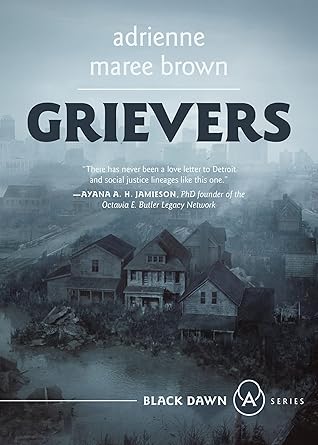More on this book
Community
Kindle Notes & Highlights
The hierarchy of grief is measured in words and silence. The closer the death, the less words can hold it.
The disrespect was the death itself. The coverage could not make it worse, it was already the worst thing that had ever happened.
Dune realized, in this unfreezing, that even if she didn’t really have an idea of why she would continue living, she didn’t want to die. She particularly didn’t want to die from H-8.
Dune wanted to care, but she found that she couldn’t process the scale of loss. Her own load was heavy enough.
They hadn’t come again, hadn’t kept knocking. It is the highest level of care, to keep knocking. She hadn’t earned that from anyone yet … she hadn’t offered it.
At some point, these trite condolences had replaced the act of grieving, of actually feeling a wave of sadness.
Even before H-8 no one knew what to do about death.
“First of all, no such thing as too much in a body surviving trauma.
It was a familiar feeling, when it seems like the world can be changed by some action that happens at the scale of a few committed people.
Grief was an amalgamation of absence narratives, layered over each other.
Dune had learned, was learning, that when you lose enough people, you stop getting as close to the new ones who come into your life.
She was experiencing the underwhelming privilege of a slow, normal death in the midst of a pandemic.
There were things she had never said to Kama, had been saving for her death bed. She cursed this failed plan daily.
She’d known so much grief, perhaps by now she was immune.
She was gaining weight as Mama Vivian watched, fairly quickly. Vivian had seen this before and understood it. Dune was making a mother for herself out of her own body, her massive grief.
It wasn’t her whole life flashing in front of her, it was the grace of her life, solid as flesh.


